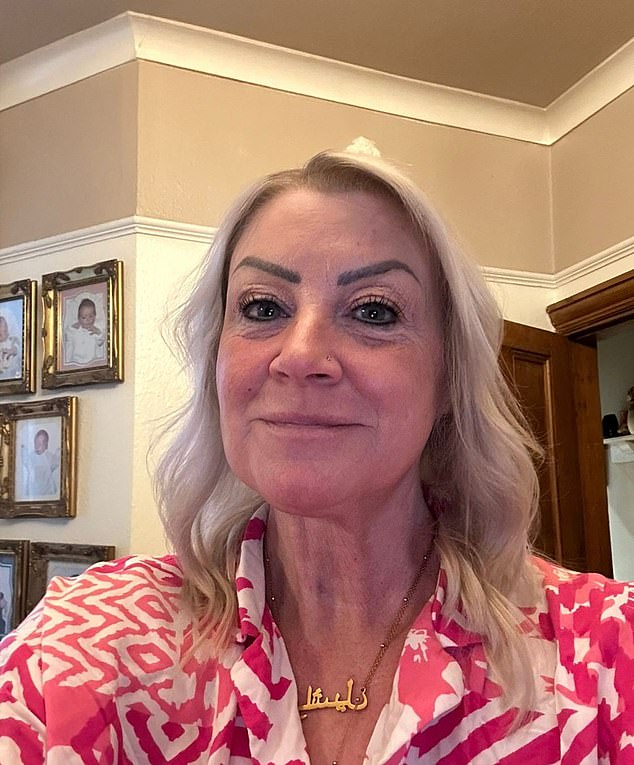I thought I had a small sore… but it turned out to be oral cancer: deaths are at a record high – now doctors warn about the often ignored symptoms that even dentists don’t recognize




Millions of people suffer from the seemingly harmless, albeit uncomfortable symptom: a mouth ulcer. And when Sinead Marland noticed she had one, she thought little of it.
It had stubbornly refused to go away after three weeks – so the mother-of-two went to her GP. It was nothing to worry about, she was told.
The small, raised white bump on her tongue was more irritating than painful. But reassured, Sinead, then 39, put it down to the stress of running after her children.
Two months later, Sinead visited her dentist for a check-up. She had learned to live with the uncomfortable ulcer, but the dentist became concerned and referred her to a specialist.
A series of tests finally revealed the shocking truth: it was mouth cancer.

When Sinead Marland noticed she had a mouth ulcer she thought little of it, but a series of tests later revealed it was mouth cancer.
“I smoked so I knew there was a risk, but the doctor said I was fine,” says Sinead. “I was incredibly lucky that he was caught.”
Sinead is now cancer-free after the operation. However, during the procedure, a large portion of her tongue was removed. For months she had trouble eating or speaking. Her speech is still not completely normal.
She says: ‘I had to learn to speak again, but I sound different now. And I have scars on my arms and torso where skin grafts were done to rebuild my tongue.”
Sinead isn’t alone: doctors, dentists and patients are all failing to spot the early symptoms of the cancer, resulting in deaths soaring over the past decade.
Cases in Britain have reached a record high, surpassing 10,000 for the first time, according to data collected by the Oral Health Foundation. In the past twenty years, diagnoses have increased by 133 percent.
As a result, the charity is holding Mouth Cancer Action Month throughout November to raise awareness of the early signs and prevent thousands of deaths.
Symptoms include persistent sores, red or white patches in the mouth, and lumps in the mouth, head, or neck. Ulcers caused by cancer usually appear on or under the tongue, but can occasionally appear elsewhere in the mouth.
‘The problem is that the early signs of mouth cancer are very similar to many other conditions, and many people suffer from canker sores,’ says Dr Ben Atkins, a dentist from Manchester.
Dr. Nigel Carter, CEO of the Oral Health Foundation, added: ‘The demographics of people with cancer have changed – we used to only diagnose heavy smokers and drinkers in their 70s, but we are seeing many younger cases. .’
The disease is also discovered later. More than half of cases are diagnosed at stage three or four.
The five-year survival rate for the most advanced cases is 35 percent – in the first stage it is 85 percent. As a result, an estimated 3,637 people in Britain died from oral cancer last year – 61 percent more than a decade ago.
‘Early detection of symptoms is crucial. So it is important that you see the dentist if you have a persistent ulcer,” says Dr. Atkins.
However, the data comes as people across the country are struggling to get a dentist appointment.
‘We tell people to see a GP or dentist as both can spot the signs of oral cancer,’ says Dr Carter.
Research shows that the increase in the number of cases is mainly caused by patients between 40 and 50 years old. Experts believe this is due to lifestyle.

In 2013, actor Michael Douglas revealed that he had developed oral cancer as a result of an HPV infection. He is now cancer free
“Smoking and excessive alcohol consumption remain important risk factors, but we are seeing a growing number of cases linked to the human papillomavirus (HPV),” says Dr. Carter. About 70 percent of mouth and throat cancers are caused by HPV, says Cancer Research UK.
In 2013, actor Michael Douglas revealed that he had developed oral cancer as a result of an HPV infection. Douglas, now 80, had a walnut-sized tumor removed from the base of his tongue and received intensive chemotherapy. He is now cancer free.
There is an HPV vaccine, but figures show that the number of children receiving it is declining. The highly effective jab has been offered to all girls in year 8 since 2008, and to all boys since 2019, but almost half of all eligible children do not receive it, leaving them vulnerable later in life.
For some, the vaccine introduction came too late.

“My mouth was a mess, it really hurt, so when I found out I had cancer I was almost relieved to know what was going on,” says Rachel Parsons
Mum-of-five Rachel Parsons, 53, visited her dentist and GP three times with a persistent mouth ulcer before insisting on a referral and being diagnosed with cancer. Later testing revealed that HPV was the likely cause.
‘My mouth was a mess, it really hurt, so when I found out I had cancer I was almost relieved to know what was going on,’ says Rachel. ‘That first year I was in and out of hospital. It also put a strain on my marriage.”
Fortunately, Rachel’s insistence on testing ensured that the disease was detected early enough to be surgically removed. She is now cancer-free and has been able to repair the damage to her relationship.
But the Coventry care worker says she has a scare almost every year, with an ulcer or pain in her mouth: ‘I’m still afraid the doctors won’t pick it up, but I’m not afraid to open my mouth now and ask for answers.”
Because the number of cases is increasing and early diagnosis is very important, if you have a mouth ulcer for more than three weeks, you should consult a dentist or doctor.




